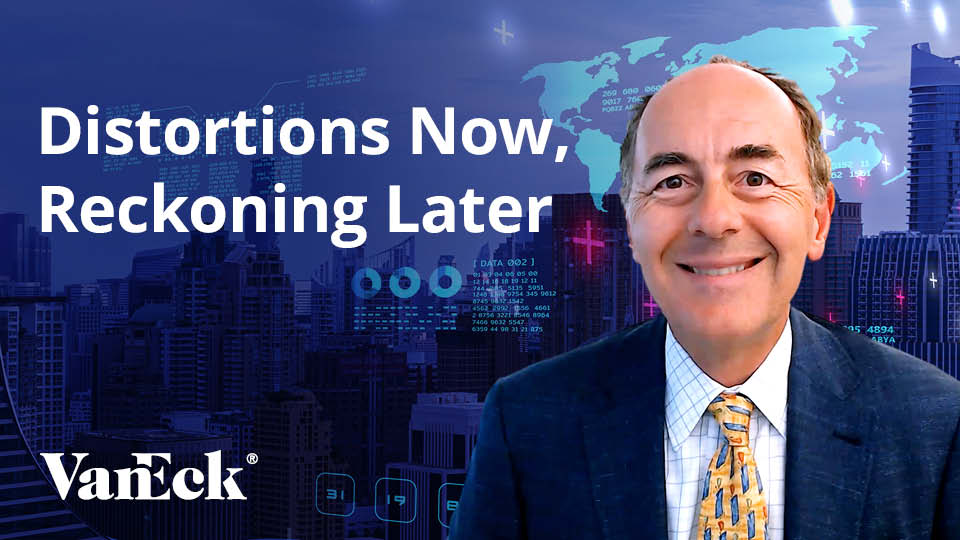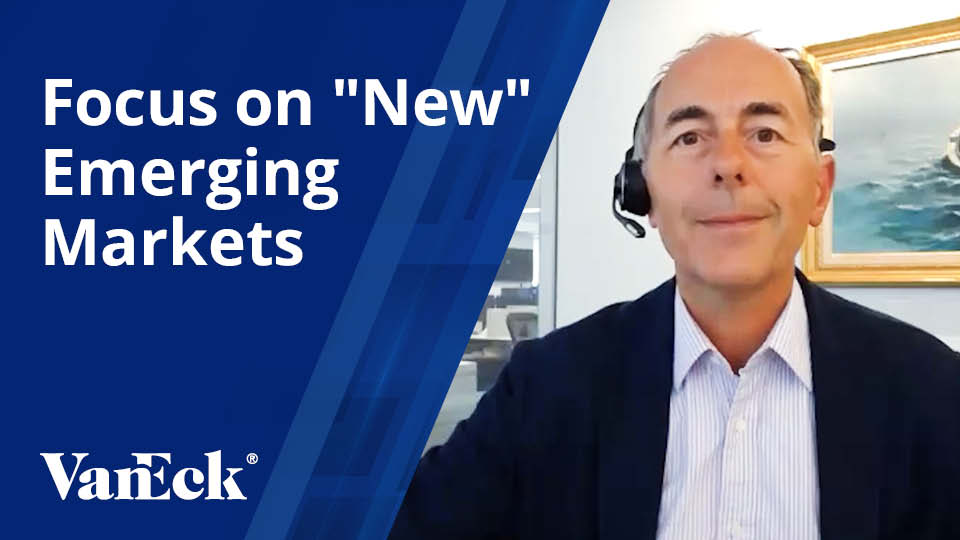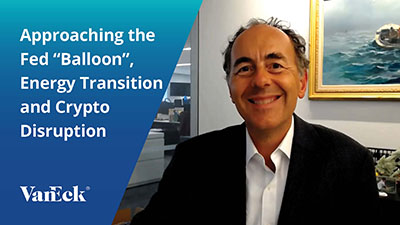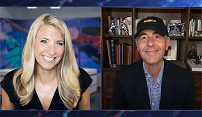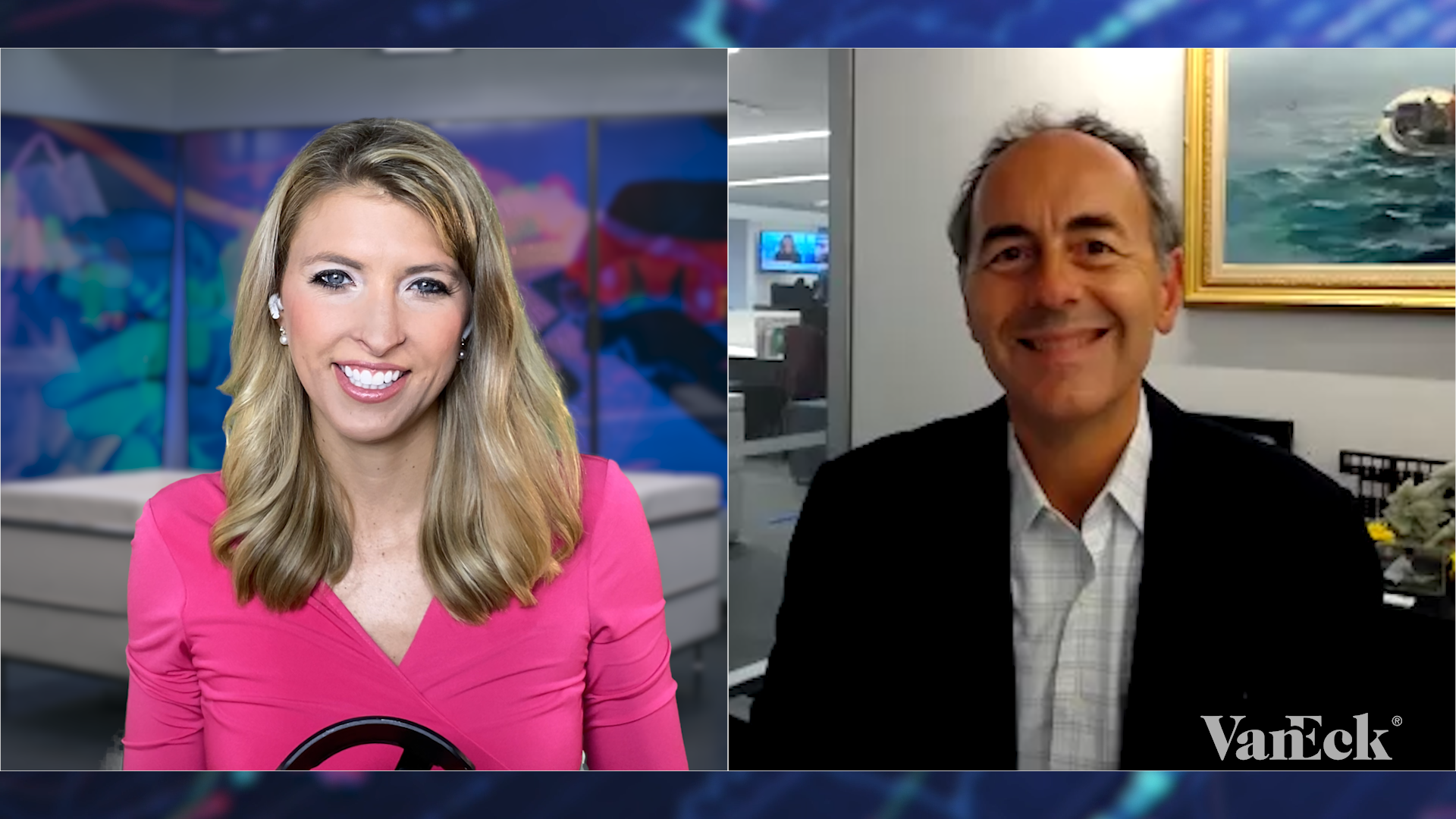Investment Outlook: China Drip Stimulus Kicking In?
07 March 2019
Watch Time 7:17
Is the “drip stimulus” from the People’s Bank of China (PBOC) starting to take effect? CEO Jan van Eck takes a closer look at the impact of the PBOC’s stimulative policies and central bank activities globally, and what this may mean for investor portfolios, particularly around diversification.
Investment Outlook: China Drip Stimulus Kicking In?
NATALIA GURUSHINA: Hello. Welcome. I'm Natalia Gurushina, Chief Emerging Markets Economist at VanEck. I'm joined here today by the company's Chief Executive Officer, Jan van Eck, to discuss his outlook for the next few months. Jan, since we talked the last time, there were some important changes. Major economies are decelerating, and the market now expects significantly less tightening by global central banks, and, of course, the most spectacular U-turn was made by the Fed [Federal Reserve]. So, how do you see the situation?
JAN VAN ECK: Right. There were really two big important issues coming into 2019. One was Chinese/global growth, and the second was central bank tightening. Let's talk about central bank tightening. That has been the big change. We were worried at the beginning of December about the effect of ECB [European Central Bank] tightening and continued Fed tightening on the financial markets. When central banks tighten, that's never great for financial assets, and so we were very nervous about the financial markets coming into the year.
Of course, markets decelerated going into December, and then, suddenly, the Fed basically did a double barreled change. Not only did it basically stop, signaled that they would stop raising rates, but then they said … Listen, they were going to reverse on quantitative tightening as well. There's nothing as good as that for financial markets. However, I call this a glass half empty. It's been a great rally, and we're sitting here at the end of February in U.S. equities and a lot of other asset classes, but it's for very bad reasons, I'll call it. That's why I call it glass half empty.
First of all, the reason was that as soon as the ECB started doing a little bit of quantitative tightening, if you will, in the second of week of December, the financial markets were seizing up and performing extremely poorly, so even though Europe is not super-important for global growth, arguably their stable growth rate is zero—potential growth rate—but they're very important in global trade, as you point out, and in the global financial system. So that tightening at ECB level had huge ramifications. I think what the Fed did it did very reluctantly, and we shouldn't be, just because the markets have been going up, so super-excited about that sitting here. I wouldn't get all bullish or additionally bullish on the markets. I think stay invested, but keep your expectations calm.
GURUSHINA: All right. Talking about China, another big change of course as you mentioned was a clear pro-growth signal in China, both on the management policy side and the fiscal side especially. Also, it looks like the past policy measures are finally working as regards credit growth. So you had a very strong view on China when we talked the last time.
VAN ECK: Right.
GURUSHINA: Is it still the same? Is it changing?
VAN ECK: Sure. In our December 4th video, we said “Don't fight the PBOC,” and that was an oversimplification for a slew of fiscal, tax-oriented and monetary steps that the Chinese government was taking. We like to call it "drip stimulus" because it wasn't meant to be an old-style sort of big system, big infrastructure stimulus program like we had after the financial crisis. It was supposed to be a moderated kind of stimulus that we thought would kick in in Q1 and Q2. I'd say we're on schedule for that, and so we still like emerging markets, emerging markets equities as an asset class relative to the developed world.
GURUSHINA: Yeah. It looks like the drip stimulus—the force or the speed of the flow—can be adjusted, if you look at the latest communications from the central bank, but I think what is important in the case of China is that we might have some seasonal factors impacting credit growth and other parameters in January, but it looks like it's been some change.
VANECK: Yep. You said it. Don't fight the PBOC. They're winning, right. So good news for Chinese equity investors. I don't see that changing so far into 2019. So I think it's just starting. Let me put it that way. Chinese equities on a one-year basis are still lagging the U.S., so even though it's been a nice month or two, I think there more to come.
GURUSHINA: Yeah. When we think about China's new policy signals. When we think about the U-turn by the Fed. When we think about deceleration of growth as it looks in developed markets. So what are the main portfolio implications?
VAN ECK: I think diversification wins. I think what we argue for and a lot of our clients and investors say: “Listen, international diversification, emerging markets. Don't just own U.S. assets.” Frankly, that's been a tough story to tell for the last 10 years because the U.S. has gone one way, and the rest of the world has gone sideways. But the last three to six months are finally rewarding diversified investors. If you look at the fourth quarter, which was very difficult for U.S. stocks, emerging markets debt was flat, gold shares were up, I think something like 14%, so you really ... All those diversifiers that you had to apologize to for clients actually were working. In fact, emerging markets equities outperformed U.S. equities despite all the trade headlines. I think that will continue, that it won't be so much U.S. only. Diversifiers will work. Keep with your financial plan, I guess, is what I would say.
GURUSHINA: Also, keep emerging markets in perspective because there are clear tailwinds on the macroeconomic side provided both by the Fed and by China stimulus.
VAN ECK: Yeah. Look, China ... We talked about it and we’ll talk about it more. China is so important to the world economy now. It's not a peripheral, and you can't think about it as ... Institutional investors aren't thinking about just peripheral to their portfolio. In fact, it's only going to grow in importance and weight in 2019.
GURUSHINA: Yeah. Importance should be understood, not just in terms of growth rates, which are slowing, but in terms of China's absolute contribution to growth.
VAN ECK: Right. It's so important. Slower growth rates still matter as much as higher growth rates used to matter. Yep.
GURUSHINA: Yeah. Thank you very much for your insights, for sharing your thoughts, and for further insights from VanEck specialists, please visit us at vaneck.com/ucits/subscribe.
Thank you.

